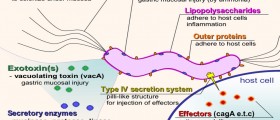
While chlamydia can lead to serious complications, including Pelvic Inflammatory Disease (PID) and even infertility, the good news about this STD is that it can normally be treated relatively easily with antibiotics. The treatment of choice is a single choice of azithromycin, or a course of doxycycline taken twice daily for seven days. These antibiotics are not suitable for pregnant women, so the weaker amoxicillin is usually recommended. The downside of this is that amoxicillin (also taken twice daily for a week) may not be as effective, and may not cure the chlamydia infection. If you have been prescribed amoxicillin or another antibiotic for chlamydia, you will need to be tested a week or two after you complete the treatment, to determine whether the infection was successfully cured. If a test reveals that you still have chlamydia upon completion of treatment, you may need another course of antibiotics.
You will discuss the options with your doctor and decide upon the best treatment. All in all, it is clear that testing, and if needed receiving treatment, for chlamydia is best done before getting pregnant. Ideally, all women should go through STD testing before getting pregnant. But if you are already pregnant, you will benefit from treatment earlier on during pregnancy. To see what can happen if you do not receive adequate treatment, read about chlamydia in pregnancy and possible complications.
- www.cdc.gov/std/chlamydia/treatment.htm
- www.cdc.gov/std/pregnancy/treatment.htm
- Photo courtesy of Quinn Dombrowski by Flickr: www.flickr.com/photos/quinnanya/3644424817/

















Your thoughts on this
Loading...